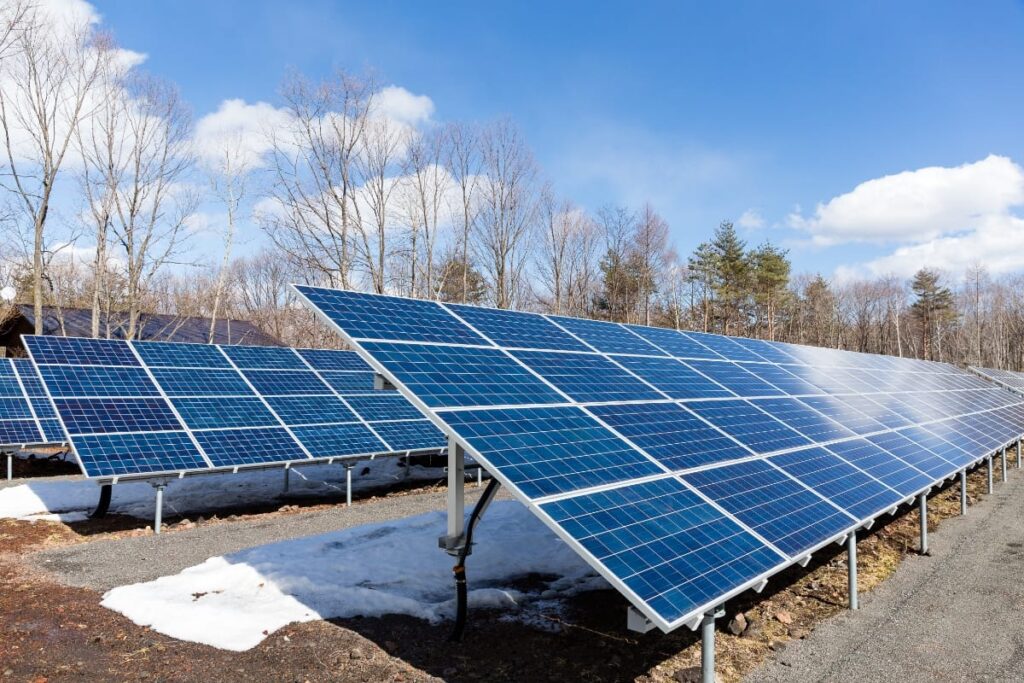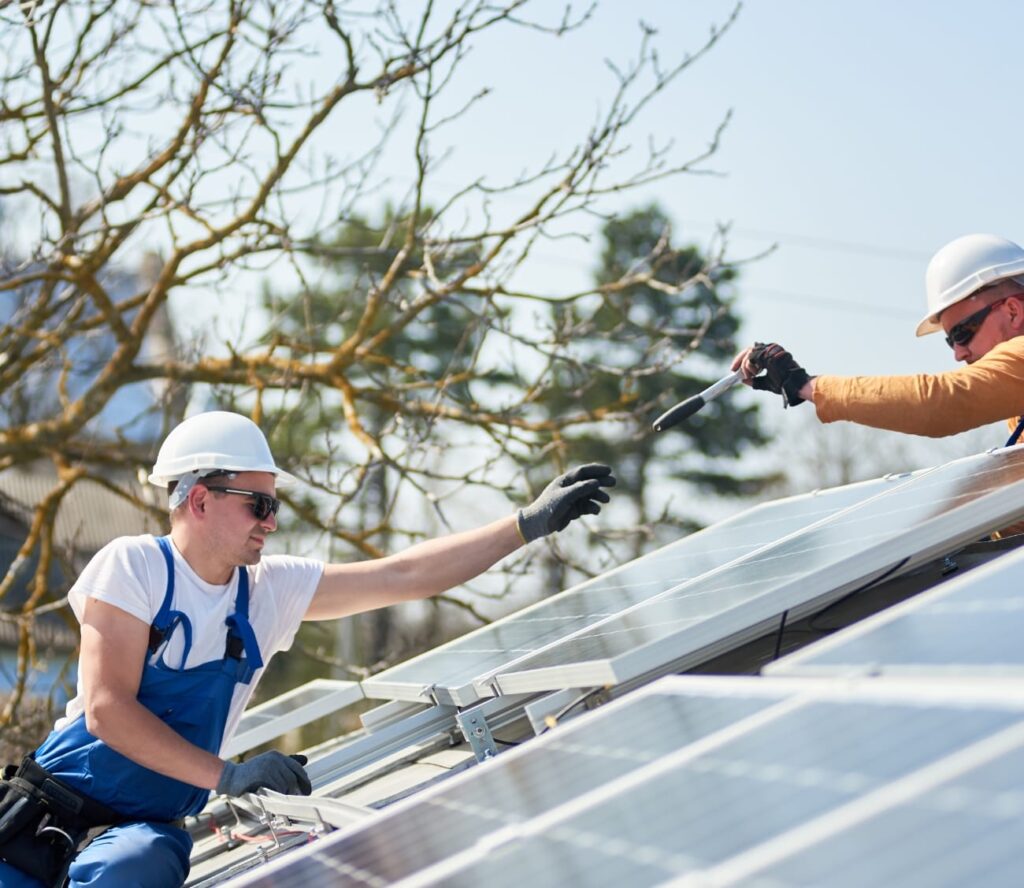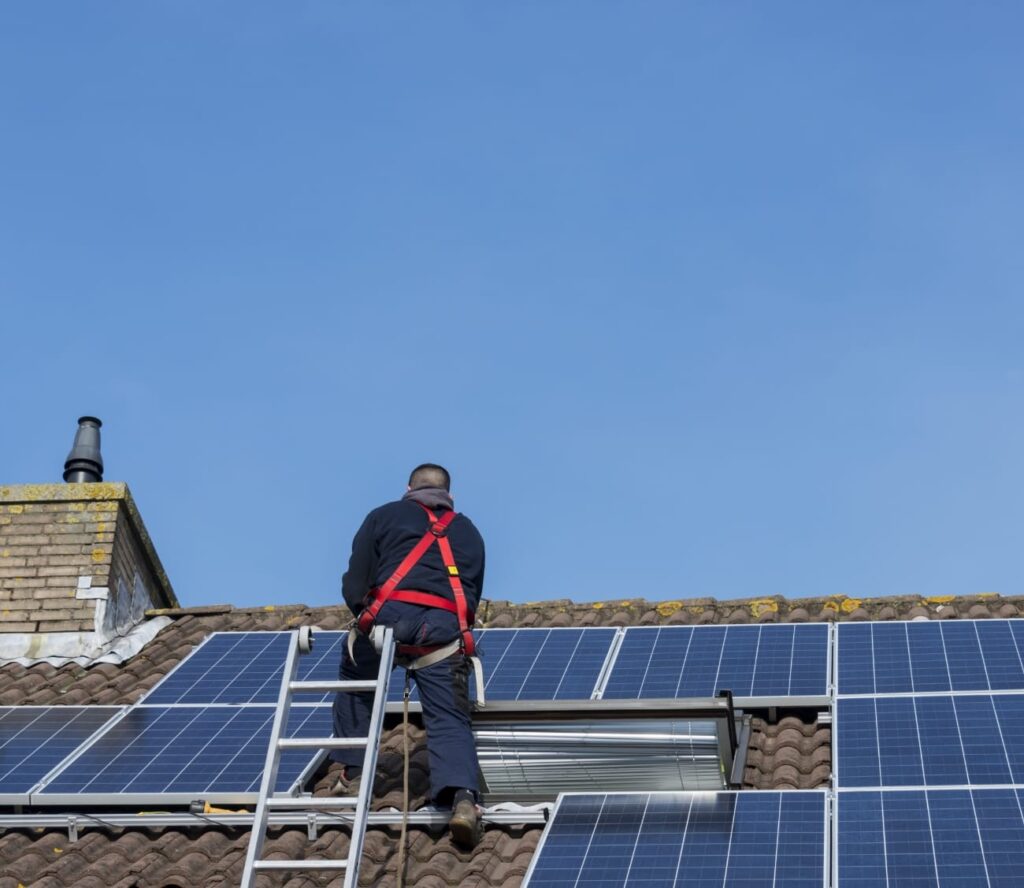
Solar panels can generate electricity even on cloudy days, although their efficiency is reduced compared to sunny days. Here’s why:
Diffuse sunlight: Even on cloudy days, sunlight penetrates through the clouds, albeit in lower intensity. This diffuse sunlight still reaches the solar panels and generates electricity, although at a reduced rate compared to direct sunlight.
Long-wave radiation: Solar panels can also generate electricity from long-wave radiation, which is present even when the sun is not directly visible due to cloud cover. This means that solar panels can still produce some power even when it’s cloudy.
Technology advancements: Continuous advancements in solar panel technology have improved their efficiency in capturing sunlight, including low-light performance. Modern solar panels are better equipped to utilize the available sunlight on cloudy days compared to older models.
Partial shading: Cloud cover can cause partial shading on solar panels, reducing their overall efficiency. However, many solar panel installations are designed with bypass diodes that allow the panels to continue generating electricity even if certain cells are shaded. This helps mitigate the impact of shading on cloudy days.
Energy storage: For areas with frequent cloudy days, integrating energy storage systems like batteries can help store excess energy generated during sunny periods for use when sunlight is limited. This enhances the overall reliability of solar power systems and ensures a more consistent energy supply.
Climate considerations: Cloud cover patterns vary depending on the location and climate. Areas with more frequent cloud cover may require larger solar panel installations or supplementary energy sources to meet energy demands during cloudy periods.
While solar panels may not reach their maximum efficiency on cloudy days, they still contribute to reducing dependence on fossil fuels and mitigating environmental impact. Additionally, when combined with other renewable energy sources and energy storage solutions, solar power can provide a reliable and sustainable energy solution even in less-than-ideal weather conditions.


Net metering is a billing mechanism that allows owners of solar panels or other renewable energy systems to receive credit for the electricity they generate and export to the grid.
Net metering is a crucial policy tool that encourages the adoption of renewable energy systems by providing financial incentives for individuals and businesses to invest in solar panels or other distributed generation technologies. It promotes the integration of renewable energy into the grid, reduces greenhouse gas emissions, and helps to stabilize energy costs for consumers. However, net metering policies vary by location, and the specifics of how credits are calculated and applied can differ between utility companies and regulatory jurisdictions.
Whether solar panels are worth it in cloudy areas depends on various factors, including the local climate, available incentives, electricity rates, and individual circumstances.
Before investing in solar panels in a cloudy area, it’s essential to conduct a thorough evaluation of your specific circumstances, including the local climate, available incentives, electricity rates, and your energy consumption patterns. Consulting with solar energy professionals and conducting a detailed financial analysis can help you determine whether solar panels are worth it for your situation.

Solar panel efficiency: While solar panels can still generate electricity on cloudy days, their efficiency is reduced compared to sunny days. If you live in an area with frequent cloud cover, you may want to invest in higher efficiency panels or technologies designed to perform better in low-light conditions.
Electricity rates: In areas with high electricity rates, the financial benefits of solar panels may outweigh the challenges of reduced sunlight. Solar panels can help offset electricity costs, especially if you can take advantage of net metering or other incentives that allow you to receive credit for excess electricity generated.
Incentives and rebates: Many governments offer incentives, rebates, or tax credits to encourage the adoption of solar energy systems. These incentives can significantly reduce the upfront cost of installing solar panels and improve the financial returns, making them more attractive in cloudy areas.
Energy storage: Integrating energy storage solutions like batteries can enhance the viability of solar panels in cloudy areas. Batteries allow you to store excess electricity generated during sunny periods for use when sunlight is limited, increasing energy self-sufficiency and reducing reliance on the grid.
Long-term investment: Solar panels are a long-term investment that can provide significant savings on electricity bills over their lifespan, which typically ranges from 25 to 30 years. When evaluating the worth of solar panels in cloudy areas, consider the long-term financial benefits rather than just short-term challenges.
Environmental impact: Beyond financial considerations, solar panels offer environmental benefits by reducing reliance on fossil fuels and lowering greenhouse gas emissions. In cloudy areas, investing in solar energy can still contribute to sustainability goals and help combat climate change.
In conclusion, while cloudy areas present challenges for solar energy generation, advancements in technology, favorable incentives, and a long-term perspective on energy savings and environmental benefits can make solar panels a worthwhile investment. By carefully assessing your local conditions, financial considerations, and energy goals, you can determine whether solar panels are a viable and valuable solution for your energy needs, even in areas with less sunshine. Ultimately, embracing solar energy contributes to a more sustainable future while offering potential savings and energy independence for individuals and communities alike.
Post Tags : solar panels, green energy, renewable energy, weather
Share :
Get a custom quote in less than five minutes.
Copyright © 2024 RevoSolar.eu Ausad Turvasüsteemid OÜ | Powered by EcoFlow